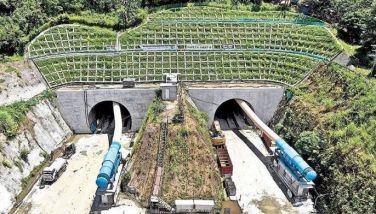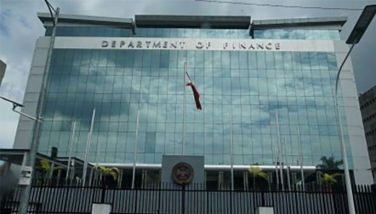No need for stimulus measures – Purisima
MANILA, Philippines - Government stimulus measures are not necessary to counter capital flight expected from the upcoming US interest rate hike later this year, the country’s finance chief said.
“The Philippines is well-positioned to absorb the potential impacts of the (peso) depreciation and the anticipated tightening of US interest rates…even without substantial adjustments to debt and fiscal management plans,” Finance Secretary Cesar Purisima told The STAR.
“With the current level of government cash holdings, we can afford to survive market closure even for an extended period of time,” he said.
Last week, the US Federal Reserve stood pat on its near-zero interest rates amid market expectations it would finally increase them as recovery in the world’s largest economy is appearing to be on track.
On the same day of the decision, the Asian Development Bank said capital flight from emerging economies like the Philippines is seen to persist since investors still see the US central bank raising rates in December.
Higher rates attract investors seeking profit for their placements, while the safe haven characteristic of the dollar adds to its appeal. As a result, Asian currencies have dropped in value in recent months, including the peso which lost about five percent since the end of 2014.
But Purisima is not rattled, saying that domestic money supply “have strengthened dramatically” – expanding 8.5 percent in July – and is more than enough to offset foreign money flowing out of the Philippines.
“Onshore liquidity conditions can fully support the government’s funding requirements,” he added.
The same is true for the government’s over-all budget balance.
“The government has sufficient cash reserves and… buffers to withstand worst-case funding scenarios,” Purisima said.
As of July, the Aquino administration barely used its budget space with the deficit amounting only to P18.5 billion against this year’s cap of P283.7 billion. A deficit indicates that the government spends more than it earns.
The government, in turn, borrows money from the domestic and foreign markets to bridge the gap between revenues and expenditures. Even on this, Purisima said the country has nothing to worry about when it comes to foreign exchange exposure.
“Government funding efforts will continue to be domestically oriented with 75 percent and 85 percent of the financing requirement for 2015 and 2016, respectively, are to be raised from domestic borrowing,” he said.
Borrowing more in pesos has been most preferred by the government since 2010 as local liabilities are not affected by currency swings. For instance, the value of debt does not rise like dollar obligations once the peso plummets against the greenback.
“Efforts to reduce reliance on external funding have reduced foreign currency debt component…, paving the way to a more resilient debt structure,” Purisima said.
The government does not also need to raise funding to settle debts immediately since only 8.5 percent of its debt stock is due over the next 12 months. Much of them also have lower “floating” interest rates.
“In the long run, we expect the continued development of the local bond market to offset some of the effects of interest rate normalization,” he said.
- Latest
- Trending

























